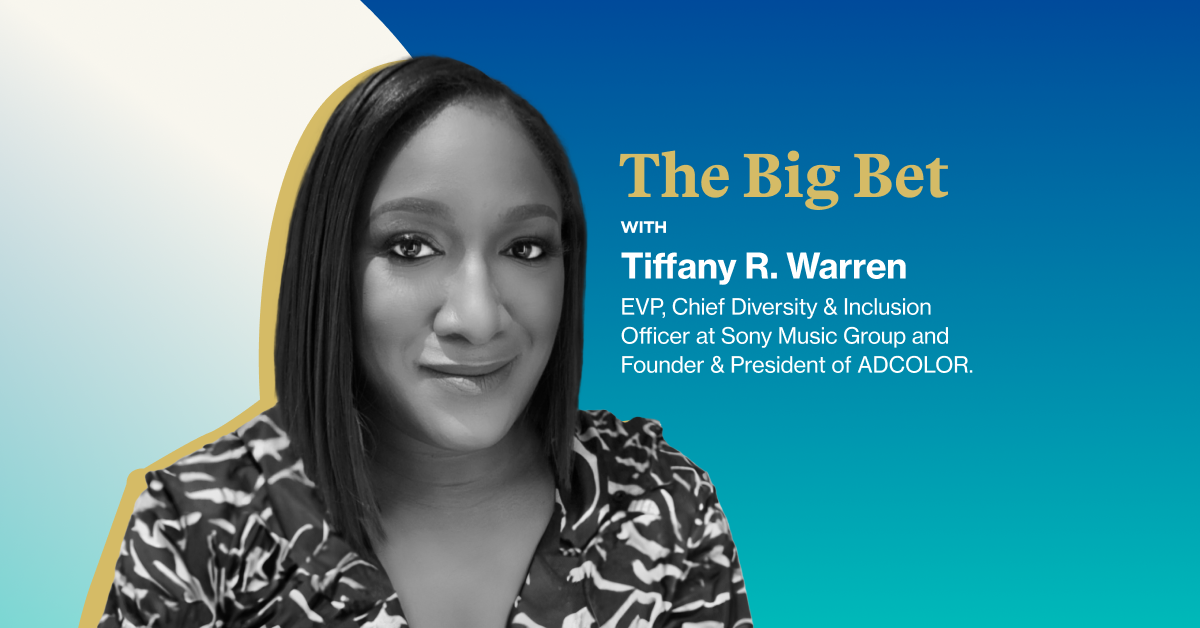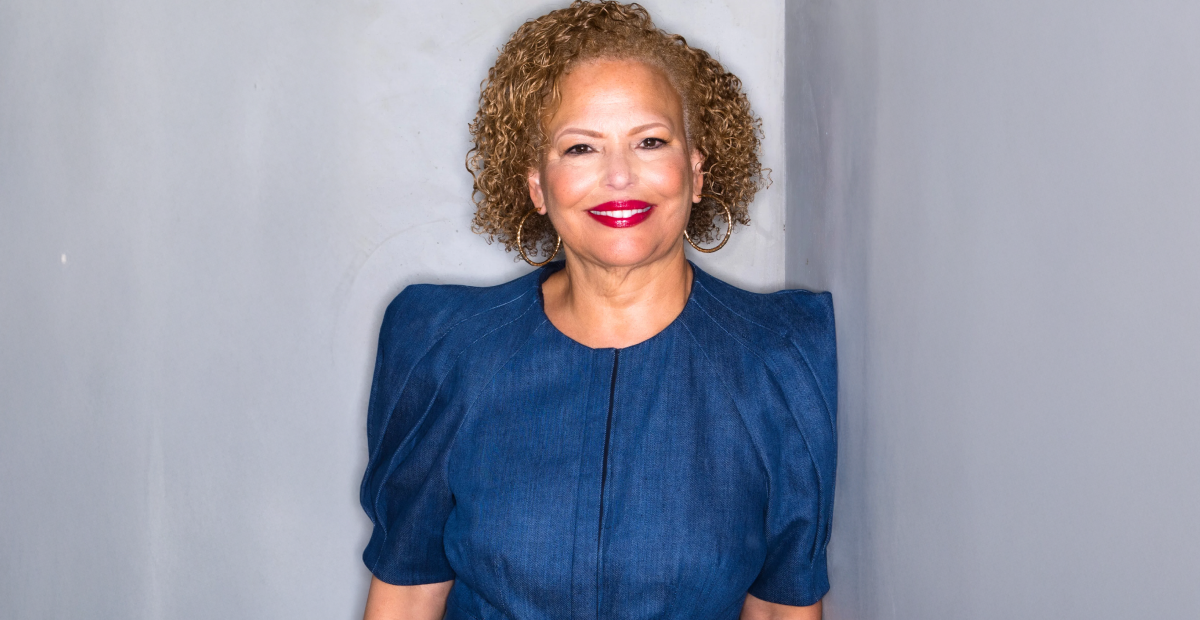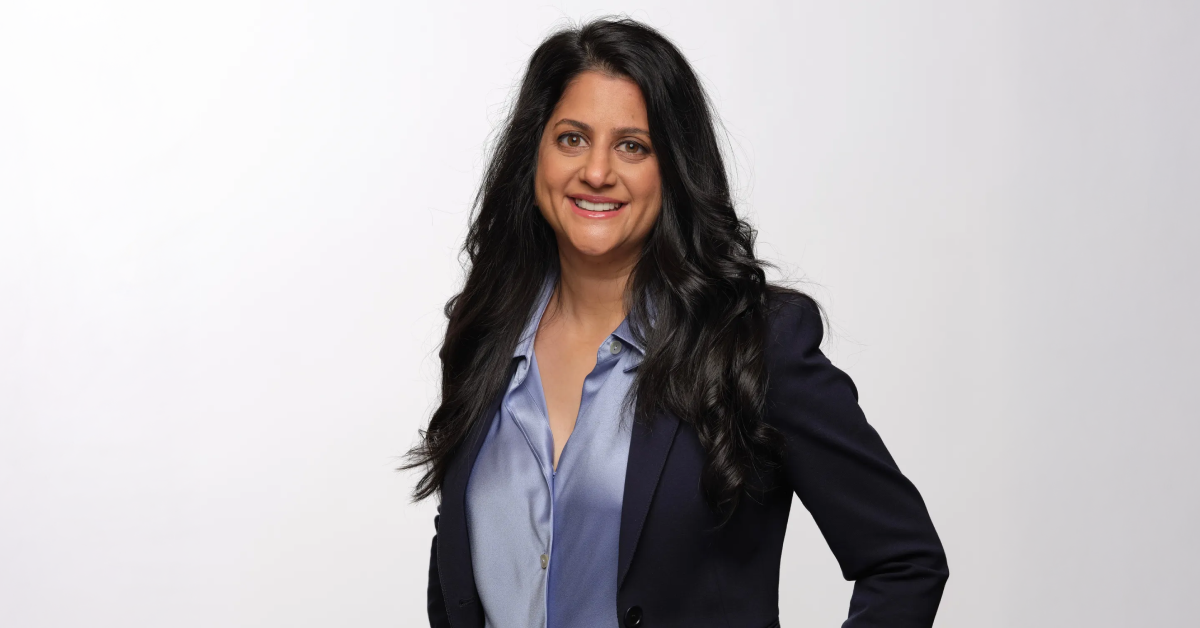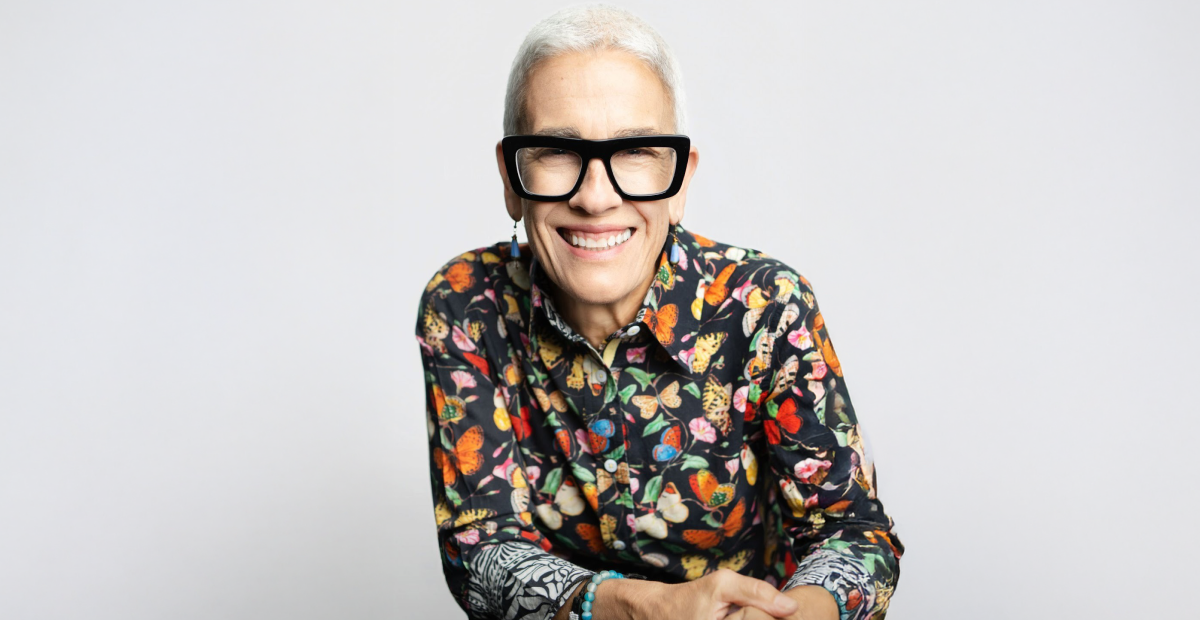The biggest career wins often come with risk. On our series, The Big Bet, Chief speaks with some of the most powerful members in our network about that single moment when they bet on themselves — and won.
When Tiffany R. Warren decided to go into the field of DEI, it didn’t exist. Not to age her, but coming up as an advertising executive in the ‘90s, there was no career framework or trajectory for this work. (Even the term “DEI” hadn’t been invented yet.)
Still, Warren responded to the need she saw in front of her: that underrepresented professionals needed an advocate, needed community — so she pitched a new role and got it. As one of the first DEI professionals, Warren has not only landed her dream job as the EVP, Chief Diversity & Inclusion Officer at Sony Music Group, but is also the Founder and President of ADCOLOR, an organization that champions diversity and inclusion in creative industries.
In this installment of The Big Bet, the “dream defender” shares how she wants to be an example to others that “you can have a passion and an occupation at the same time.”
On Creating a New Career Path
“Reaching this role at Sony Music Group as the Chief Diversity Inclusion Officer is really part of a longer career plan of milestones related to diversity, equity, and inclusion. I think the first milestone was back when I was an account executive at a Boston advertising agency, and I was on track to be an advertising agency president someday. I had it put on my vision board.
“But what sidetracked me in the most beautiful way is that I wasn't needed necessarily in account management, which is where I was beginning to take my career. I was more needed in DEI because what I discovered was that the agency and the industry itself didn't have a huge amount of diversity. I switched to DEI, basically, right at that moment. Back then it was just called diversity. You didn't even have equity and inclusion or accessibility or social justice. Very quickly, I was the point of contact in this company around DEI and that began my career and my new pathway.”
On Taking a Bet on Herself … and the Underrepresented
“I bet on myself that I would find more fulfillment in helping the agency bring in more people that looked like me and had different POVs. From that point on, I picked and chose jobs that would allow me to still be an account manager and also do diversity, equity, inclusion. Today, the kids would call it a side hustle. But back then, I tell people I started out with an occupation and I ended up with an awesome passion. I bet on myself because there weren't a lot of people doing that work. There were definitely executives of color who were at organizations that supported diversity, equity, and inclusion in corporate America, but there wasn't a specific pathway that I can point to and say, ‘I want to be that person.’ So I created a career path. I took a chance at doing this in 1997.
“I became a point of contact for recruiting. If there was a person from an underrepresented community that came in I was sort of an ambassador for them, a welcome committee of one. I knew that regardless of my level, it was important to build community. I wasn't privy to data. I wasn’t privy to demographics, I wasn’t privy to any specific issue that was happening in the agency, I just innately knew that when I enter environments where I am one of one, it’s my responsibility to reach back. It became a huge part of the mission of ADCOLOR. As I kept rising up, I kept reaching back.”
On Being a Dream Defender
“It’s such a unique and multifaceted reason why I decided to step out on faith and not only bet on myself, but the industry that I was in, that the stories and the careers and the achievements of professionals of color mattered. I wasn't seeing those achievements celebrated in the way that they should be. I believe I was one of the first handful of managers of diversity in advertising.
“I remember when I embarked on launching ADCOLOR and now we're celebrating 18 years. It’s really incredible, maintaining and supporting the community and growing a non-profit — it’s a dream, but being the EVP at Sony is the dream career. As someone who helps others as a dream defender, I can have my own dream as well. I want to be an example of that for folks: that you can have a passion and an occupation at the same time.
"Our process is twofold. First, we help individuals and organizations rise up, letting their accomplishments and ideas shine. Then, we teach these new leaders and would-be-mentors how to reach back and find others who deserve to be noticed and promoted. Our goal is to create a community of diverse professionals who are here to support and celebrate one another, but also learn from the achievements and the mistakes. In communities of color, we pass down only stories of success but [at ADCOLOR] we also pass down the ‘watch out’ and ‘this is what you need to pay attention to.’ We’ve been creating that environment for the last 18 years.”
On Measuring Success With a Nonprofit
“Our KPI isn’t the same KPI you think of in business. Our KPI means Keeping People Inspired, Keeping People Invested. We’ve been able to do that when a company's board is providing opportunities for team members to go to ADCOLOR and they come back into the company with new ideas on how to make that culture better. I always think about that Tupac quote where he said, ‘I may not change the world, but I guarantee that I will spark the brain that will change the world.’”
On Intersectionality in Leadership
“From the time I was two, my family pushed the idea of developing Tiffany, knowing that culturally, I’m a Black woman with Caribbean roots. And I’ve been exposed to all of that growing up. But this idea of individualism in my family, in terms of really developing who you are and what you want…I don't think there's one person in my family who’s ever done something because their parents told them to. It was, ‘What do you want to do?’ which is a powerful message to receive very young. I also had an amazing godmother who told me early on about delayed gratification, about working hard, and you are who you surround yourself with. I got these messages at 10, 11 years old. I had a really strong track record of knowing my intersectionality and how important it was super early. I never looked at it as what society would view as an impediment.
“Or more recently, this idea of imposter syndrome. I want to replace the identity-based trauma. The consequences of imposter syndrome are based on your identity. It’s not that you’re posing as someone else; it’s based on who you are. That’s always been in my head when I think about how beautifully my intersectionality has played into my success.”
On Taking Huge Leaps of Faith
“Becoming the Chief Diversity Officer of a major holding company and having the responsibility of diversity, equity, and inclusion for three cities and a multinational company [that grew from 5,000 to] 75,000 employees — and being shy of 33. You know, the first time, I was approached about this opportunity, I said no because I felt like I wasn't ready. Then the second time it came around, I said I would be a fool. I was scared out of my mind, it was such a big leap, it almost made me black out. That was the first big leap and I ended up spending 11 amazing years there creating a powerful DEI framework that is still in use today and has grown exponentially in a beautiful way.
“My second big leap was going from advertising to music. Moving to music wasn't really a secret passion of mine. I think everybody who knew me knew how important music is. I incorporated it into ADCOLOR — we create a theme song every year from scratch. If I could time-travel back to my 12-year-old self in the hall of my all-girls private school where I was lowest in terms of socio-economic status in my class, I would go up to her and say, ‘Hey, kid, you're going to be an EVP at Sony Music Group some day, the same company with legacy artists like Michael Jackson.’ I would have literally passed out in the hallway. So for me, it was no question that I was going to take that leap. I’ll be celebrating three years in November.”
On What Fuels Her
“What fuels me is my 7-year-old niece Ahmenra, who has so much swag and self-awareness in the tip of her pinky — watch out world! When she repeats back things that she has observed, she does it in a way that is honest and true to her. Many of us grew up being told that if we spoke up or disagreed [with something, we would not be met with] positive consequences. If Ahmenra doesn’t want to do something or disagrees or is adamant, we support that. She fuels me. The world we’re creating for her fuels me.
“My fear is the withdrawal of DEI and the attack on DEI that seems to be occurring in all of its forms — the trans ban or the affirmative action case, the list is long. There’s this fear — and hope — and it’s fueling an energy that I haven’t seen since I started. I’m here for the fight.”
On Advice for Future Women in Leadership
“Keep it real. You know, when we talk about what we've had to sacrifice to build up to leadership, hopefully we’re moving into an era where there's so much information and research that gives women the ability to create their own reality when it comes to leadership. I think there was definitely a blueprint you followed coming up that very much looked like what you would do if you were a man. I think we all kind of subscribe to that. But I think in the future, women's leadership will be based on a foundation that builds on trust and authenticity and transparency. More and more women are being really honest about the challenges of being a leader in 2023 and, therefore, the generation that’s coming up will now have so many ways to be successful.”



